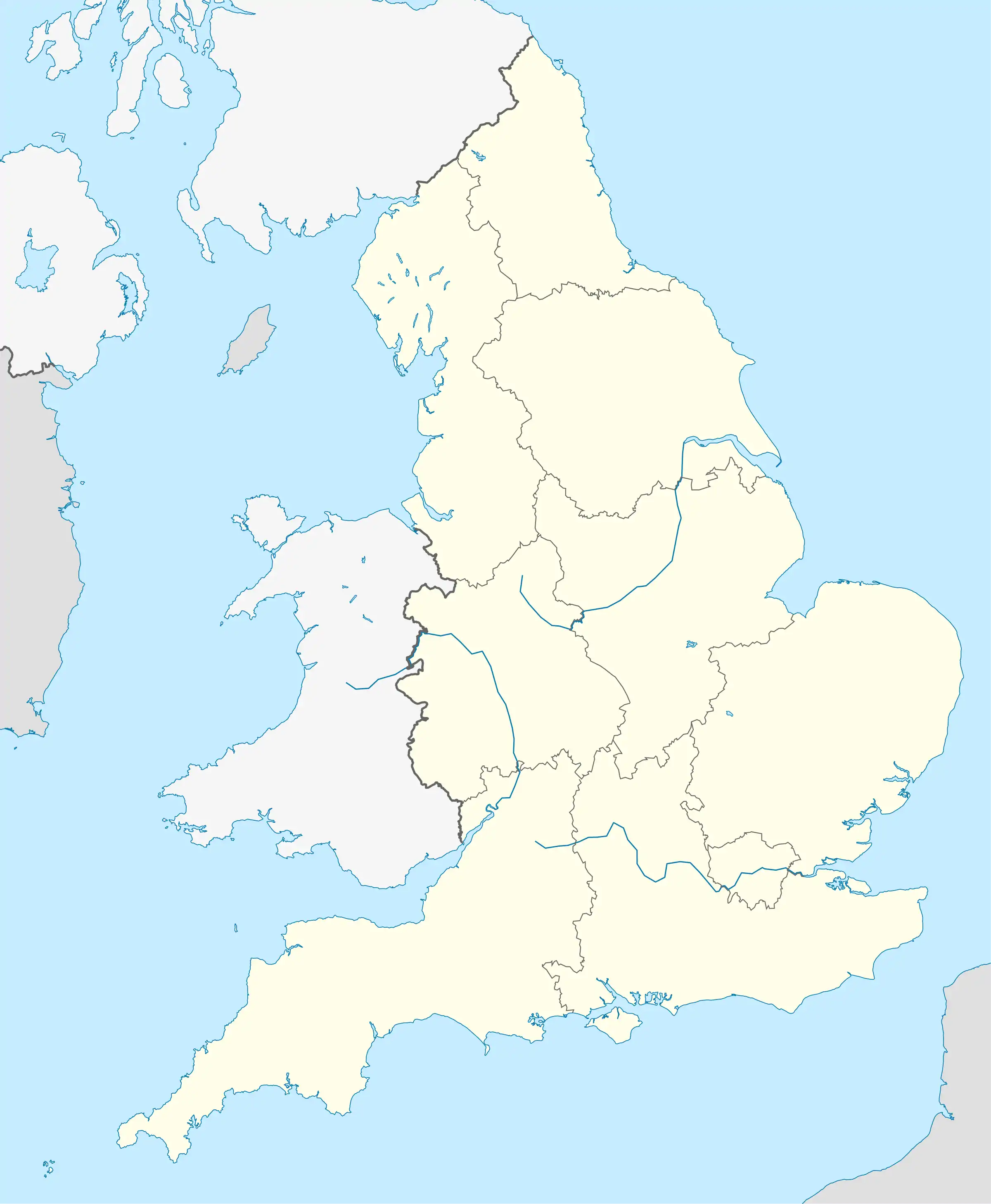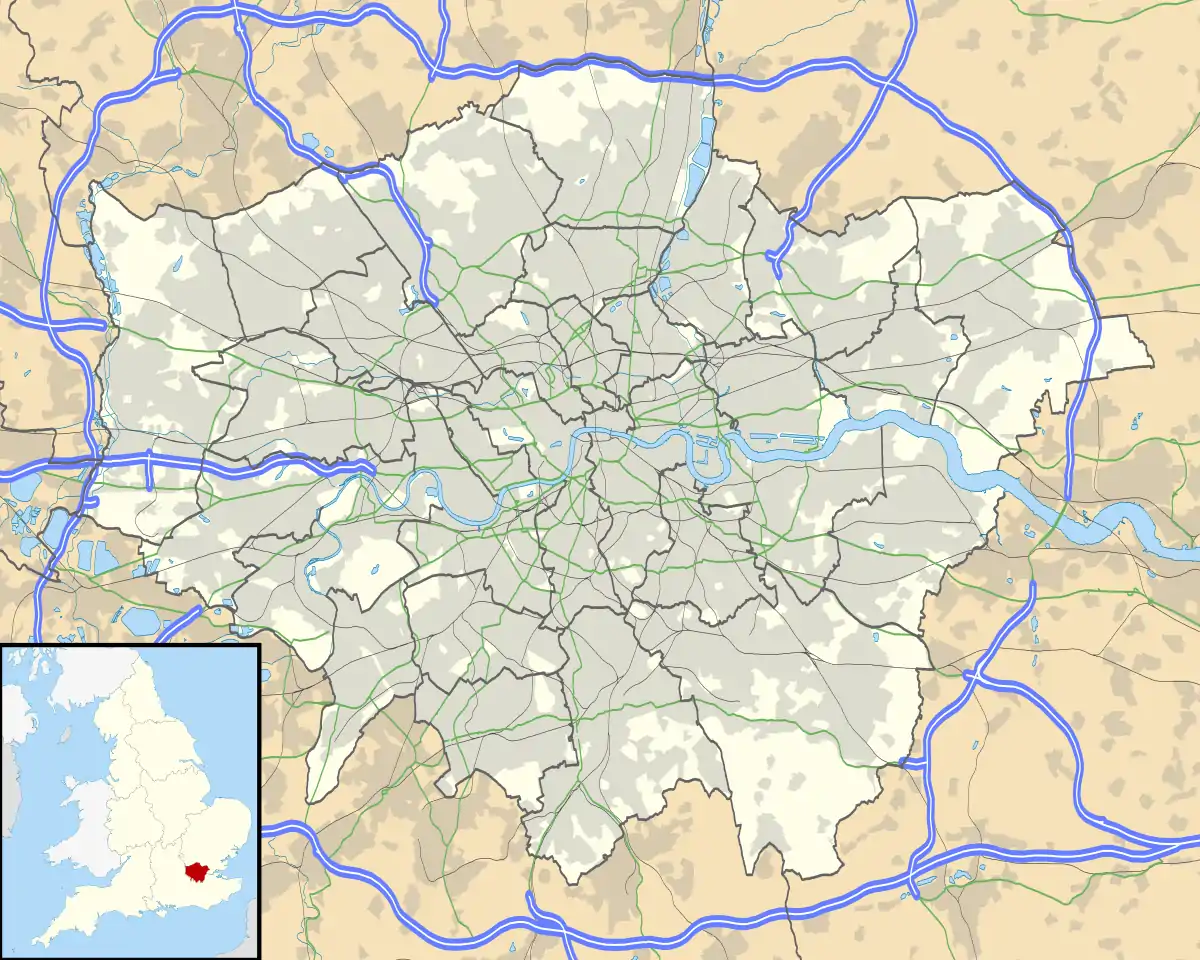EFL Championship
The English Football League Championship (often referred to as the Championship for short or the Sky Bet Championship for sponsorship reasons, and known as the Football League Championship from 2004 until 2016)[1] is the highest division of the English Football League (EFL) and second-highest overall in the English football league system after the Premier League. The league is contested by 24 clubs. Each season, the two top-finishing teams in the Championship are automatically promoted to the Premier League. The teams that finish the season in 3rd to 6th place enter a playoff tournament, with the winner also gaining promotion to the Premier League. The three lowest-finishing teams in the Championship are relegated to League One.
 | |
| Founded | 2004–present 1992–2004 (as Football League First Division) 1892–1992 (as Football League Second Division) |
|---|---|
| Country | |
| Other club(s) from | |
| Number of teams | 24 |
| Level on pyramid | 2 |
| Promotion to | Premier League |
| Relegation to | League One |
| Domestic cup(s) | FA Cup FA Community Shield |
| League cup(s) | EFL Cup EFL Trophy |
| International cup(s) | UEFA Europa League (via FA Cup) UEFA Europa Conference League (via EFL Cup) |
| Current champions | Leeds United (2019–20) |
| Most championships | Newcastle United Reading Sunderland Wolverhampton Wanderers (2 titles each) |
| TV partners | List of broadcasters |
| Website | Official website |
| Current: 2020–21 EFL Championship | |
The Championship, which was introduced for the 2004–05 season, was previously known as the Football League First Division (1992–2004), and before that as the Football League Second Division (1892–1992). The winners of the Championship receive the EFL Championship trophy, the same trophy as the old First Division champions were handed prior to the Premier League's inception in 1992. Similar to other divisions of professional English football, Welsh clubs can be part of the division, making it a cross-border league.
The Championship is the wealthiest non-top flight football division in the world and the ninth richest division in Europe.[2] With an average match attendance for the 2018–19 season of 20,181,[3] the Championship had the highest per-match attendance of any secondary league in the world, with only nine top-flight leagues known to have higher attendance figures.[4]
Barnsley have spent more seasons at the second level of English football than any other team and on 3 January 2011 became the first club to achieve 1,000 wins in the second level of English football with a 2–1 home victory over Coventry City. Barnsley are also the first club to play 3,000 games in second-level league football (W1028, D747, L1224).[5] Currently, Nottingham Forest and Derby County hold the longest tenure in the Championship, last being out of the division in the 2007–08 season.[6][7]
History
In its inaugural season of 2004–05, the Football League Championship announced a total attendance (including postseason) of 9.8 million, which it said was the fourth highest total attendance for a European football division, behind the FA Premier League (12.88m), Spain's La Liga (11.57m) and Germany's Bundesliga (10.92m), but beating Italy's Serie A (9.77m) and France's Ligue 1 (8.17m).[8][9][10]
Sunderland won the league in the first season since re-branding, with Wigan Athletic finishing second to win promotion to the top flight of English football for the first time in their history. They had only been elected to the Football League twenty-seven years previously; playing in the fourth tier as recently as eleven years prior to their promotion. West Ham United won the first Championship play-off final that season, following a 1–0 victory over Preston North End at the Millennium Stadium in Cardiff. In the 2005–06 season, Reading broke the Football League points record for a season, finishing on 106 points, exceeding the record set by Sunderland in 1999.[11]
Sunderland won their second Championship title in three seasons in the 2006–07 season. On 4 May 2007, Leeds United became the first side since the re-branding of the division to enter administration; they were deducted 10 points and were relegated as a result.[12][13] On 28 May 2007, Derby County won the first Championship play-off final at the new Wembley Stadium, beating West Bromwich Albion 1–0 in front of nearly 75,000 spectators.[14] West Brom would go on to win the Championship in the following season.
On 30 September 2009, Coca-Cola announced they would end their sponsorship deal with The Football League (now English Football League) at the end of the 2009–10 season.[15] On 16 March 2010, npower were announced as the new title sponsors of the Football League, and from the start of the 2010–11 Football League season until the end of the 2012–13 season, the Football League Championship was known as the Npower Championship.[16]
On 18 July 2013, UK bookmaker Sky Bet announced that they signed a five-year agreement to sponsor the league.[1]
On 24 May 2014, the Championship play-off final between Derby County and Queens Park Rangers saw the highest crowd for any Championship fixture – 87,348 witnessed a Bobby Zamora stoppage time winner for QPR to win promotion for the London club.[17]
For the 2016–17 season, the Football League was re-branded as the English Football League. The league had an cumulative attendance of more than eleven million – excluding play-off matches – with more than two million watching Newcastle United and Aston Villa home fixtures alone; both of whom had been relegated from the Premier League in the previous season. This was included in the highest crowds for the second to fourth tier in England since the 1958–59 season.[18]
Structure of the league
The league comprises 24 teams. Over the course of a season, which runs annually from August to the following May, each team plays twice against the others in the league, once at 'home' and once 'away', resulting in each team competing in 46 games in total. Three points are awarded for a win, one for a draw and zero for a loss. The teams are ranked in the league table by points gained, then goal difference, then goals scored and then their head-to-head record for that season. In the event that two or more teams finish the season equal in all these respects, teams are separated by alphabetical order, unless a promotion, relegation or play-off place (see below) is at stake, when the teams are separated by a play-off game, though this improbable situation has never arisen in all the years the rule has existed.[19]
At the end of the season, the top two teams and the winner of the Championship play-offs are promoted to the Premier League and the bottom three teams are relegated to Football League One. The Football League Championship play-offs is a knock-out competition for the teams finishing the season in third to sixth place with the winner being promoted to the Premier League. In the play-offs, the third-placed team plays against the sixth-placed team and the fourth-placed team plays against the fifth-placed team in two-legged semi-finals (home and away). The winners of each semi-final then compete in a single match at Wembley stadium with the prize being promotion to the Premier League and the Championship play-off trophy.
Current members

The following 24 clubs will compete in the EFL Championship during the 2020–21 season.
Results
League champions, runners-up and play-off finalists
1 When Norwich City gained promotion to the Premier League they were the first team to be relegated to, relegated from, promoted to and promoted from the Championship.
2 When Burnley were promoted in second place with 93 points, they had set a record for the most points for a second-placed team. This record was subsequently matched by Brighton & Hove Albion in the 2016–17 season when they finished second with 93 points.
For past winners at this level before 2004, see List of winners of English Football League Championship and predecessors
Relegated teams (from Championship to League One)
Relegated teams (from Premier League to Championship)
Promoted teams (from League One to Championship)
Top scorers
See also
- EFL Championship Manager of the Month
- List of English football club owners
- List of attendance figures at domestic professional sports leagues – Championship attendance in a worldwide context
- List of professional sports teams in the United Kingdom
References
- "Sky Bet to sponsor The Football League". The Football League. 18 July 2013. Archived from the original on 21 July 2013. Retrieved 18 July 2013.
- "Cumulative revenue of Europe's 'big five' leagues grew by 5% in 2012/13 to €9.8 billion". deloitte.com. Deloitte Touche Tohmatsu Limited. Retrieved 5 August 2015.
- "Championship 2018/2019 - Attendance". worldfootball.net. Retrieved 31 October 2019.
- A referenced list of all leagues ranking above the Championship is available at the Major League Soccer attendance page.
- "Barnsley 2–1 Brighton". BBC Sport. 12 March 2013. Retrieved 11 August 2017.
- Flanagan, Chris (1 April 2019). "Derby County's shocking 2007/08 revisited: the Premier League's worst ever season, told by those who were there". FourFourTwo. Retrieved 11 December 2019.
- Clarke, Lee (24 November 2016). "Where are they now? - Nottingham Forest's 2007/08 promotion winning team | Football League World - Part 11". footballleagueworld.co.uk. Retrieved 11 December 2019.
- "Countdown underway to new season". BBC News. 6 August 2005. Retrieved 2 May 2010.
- Lansley, Peter (29 July 2005). "Championship glories in outstripping Serie A". The Times. UK. Retrieved 2 May 2010.
- First class second division TheFA.com
- "League Points". Football League 125. Archived from the original on 12 November 2017. Retrieved 2 March 2018.
- "Leeds Utd call in administrators". BBC News. 4 May 2007. Retrieved 2 March 2018.
- "Relegated Leeds in administration". BBC Sport. 4 May 2007. Retrieved 2 March 2018.
- "Derby 1–0 West Brom". BBC Sport. 28 May 2007. Retrieved 2 March 2018.
- Coca-Cola end Football League sponsorship deal The Guardian, 30 September 2009
- Football League names npower as new sponsor BBC Sport, 16 March 2010
- "Derby County 0–1 Queens Park Rangers". BBC Sport. 24 May 2014. Retrieved 2 March 2018.
- "EFL: More than 18m fans watched matches in 2016–17". BBC Sport. 11 May 2017. Retrieved 2 March 2018.
- "Championship". Sporting Life. Archived from the original on 9 May 2006. Retrieved 2 April 2008.
- "Football Ground Guide". Football Ground Guide. Retrieved 30 November 2016.
- The teams listed for this season were ranked using points per game following the curtailment of the season due to the COVID-19 pandemic in the United Kingdom.
External links
![]() Media related to EFL Championship at Wikimedia Commons
Media related to EFL Championship at Wikimedia Commons
- Official website
 Football League
Football League - Championship Stadia The Championship Stadia
